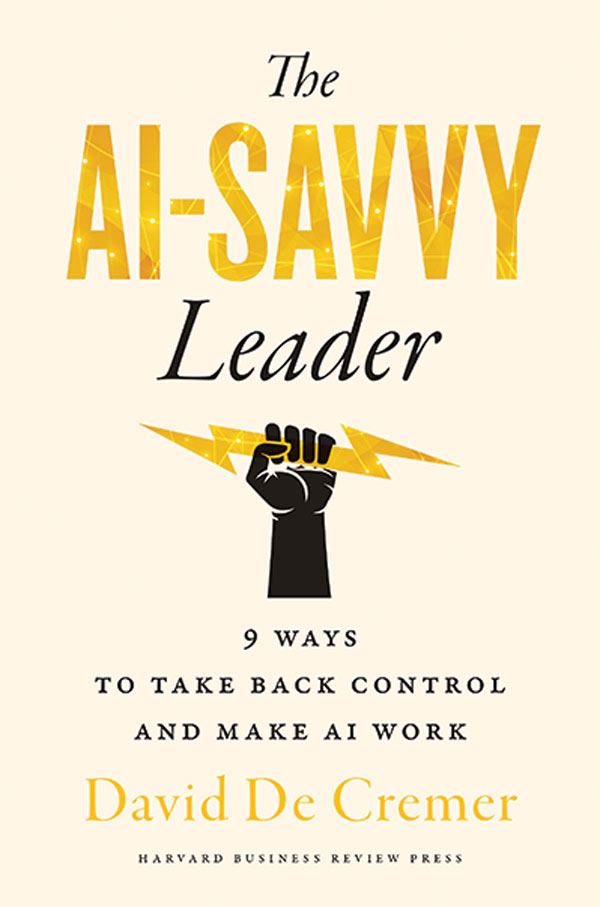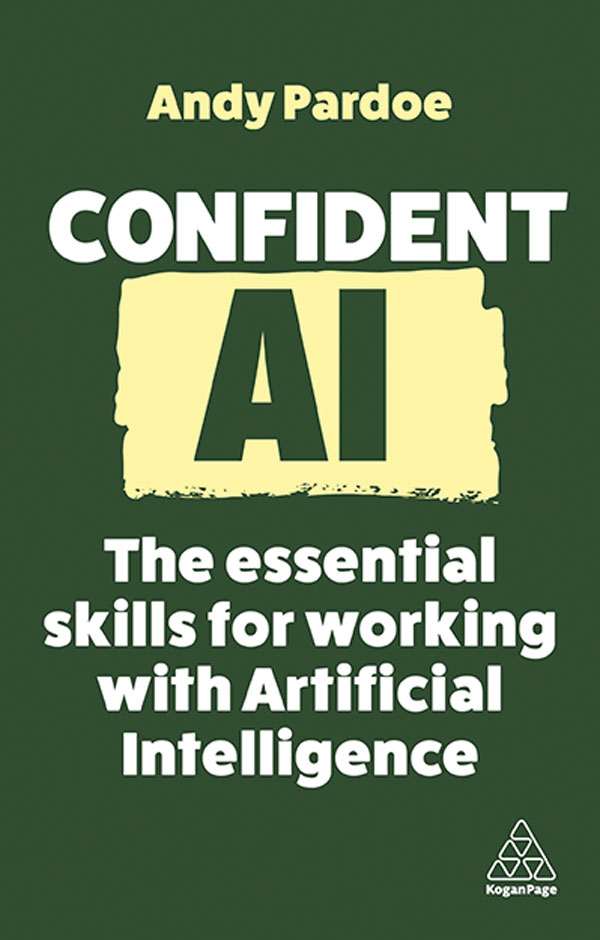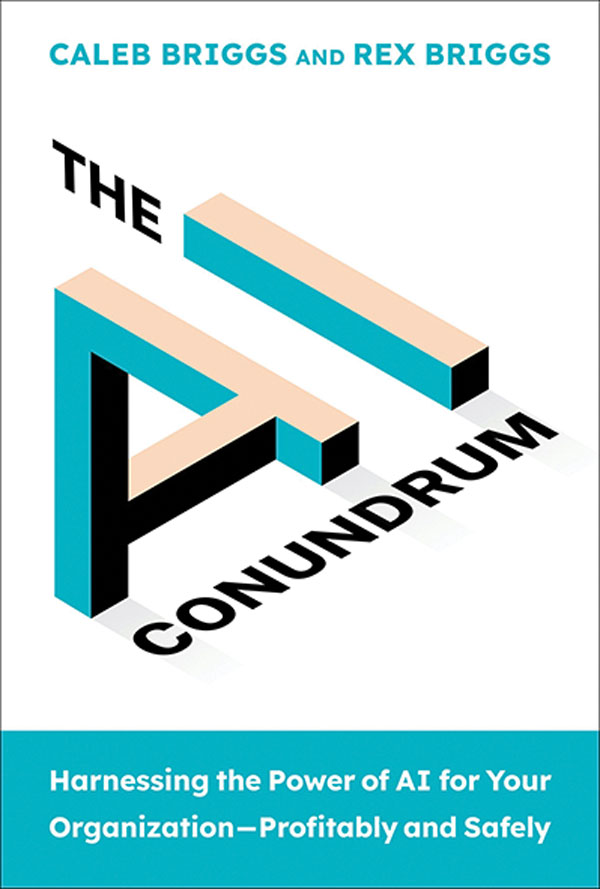
The AI Conundrum
While AI’s pattern recognition capabilities can allow workers to skip dreary, repetitive tasks, they’re famously unreliable. Faulty data leads to biased results, and AI can “hallucinate,” seeing patterns where none exist and producing garbled results. The authors—Caleb is a student at Reed College, and his father, Rex, is an AI subject matter expert at a marketing trade organization—dispense a just-the-facts tutorial on how AI works and how professionals can use it to best advantage in their businesses.
The AI-Savvy Leader
De Cremer, the dean of Northeastern University’s business school, “demonstrates a refreshing willingness to topple corporate shibboleths,” according to PW’s review of this impassioned manifesto, which urges execs not to cede control of their businesses to the machines. Too many leaders, he writes, are stumped by how to best use AI or fearful of its consequences; as a countermeasure, he presents nine decidedly human actions leaders can take, such as vision building and strategy creation, to regain control.
Confident AI
AI consultant Pardoe lays out the basics of AI’s inner workings and business potential in the latest installment of Kogan Page’s Confident series. With an emphasis on skills-building and understanding of fundamentals, Pardoe’s first book-length work functions as an introductory course for professionals seeking a firm grasp of a new technology.
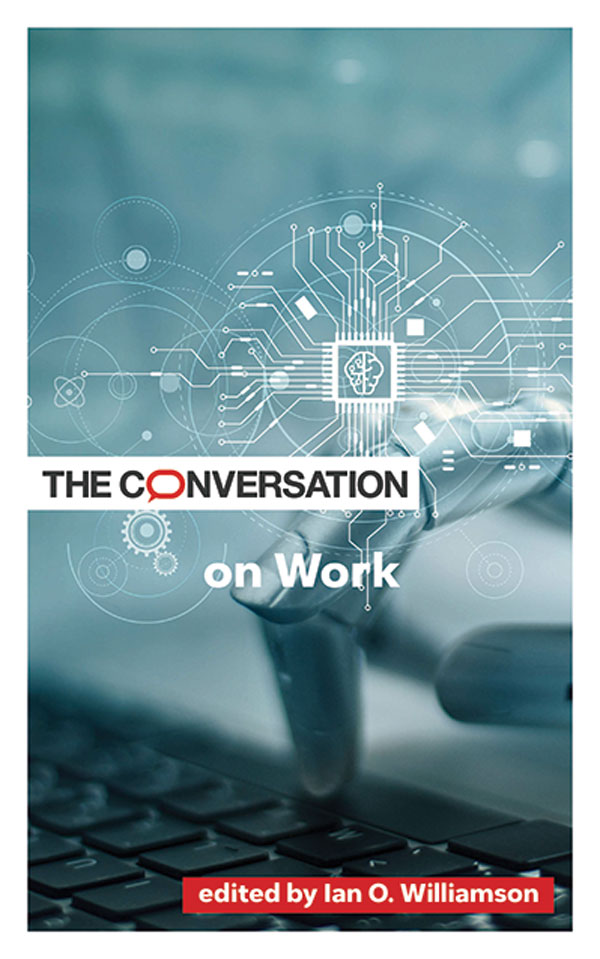
The Conversation on Work
The essays in this compilation, originally published on the website The Conversation and edited by University of California–Irvine business school dean Williamson, discuss what work looks like in the AI era, post-Covid and at a time of shifts in labor relations and union organizing. Essays discuss the growing impact of AI on both workers and businesses.
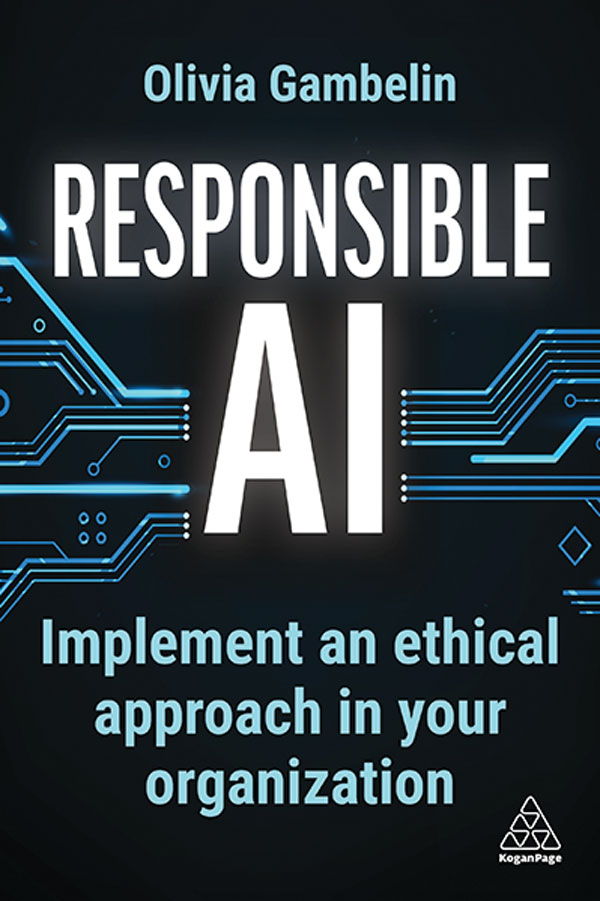
Responsible AI
Implementing AI practices in a workplace needs to be more than good for the bottom line: it should also be done carefully and thoughtfully, says Gambelin, who founded the AI Ethics advisory firm Ethical Intelligence. She walks leaders through developing a morally upstanding AI strategy, managing risk vs. innovation, and ensuring that data inputs and the staff responsible for managing them are as free as possible from bias.
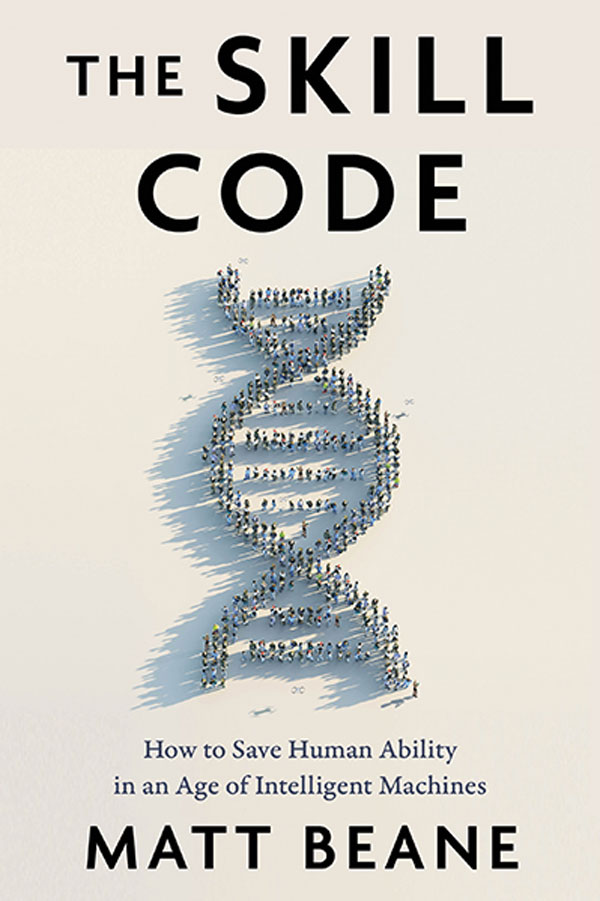
The Skill Code
Beane, a technologist whose field research centers on the relationship between workers and intelligent technology, attempts to future-proof readers’ careers by restoring the bond between junior and senior staffers. This link is at risk, he says, in production-obsessed workplaces where reliance on AI technologies have come between mentors and mentees. Beane promotes what he calls the three C’s—challenge, complexity, and connection—to help readers build skills before they find themselves replaced by machines.



